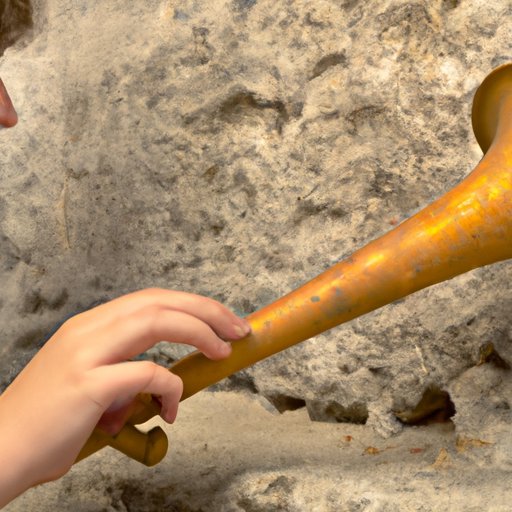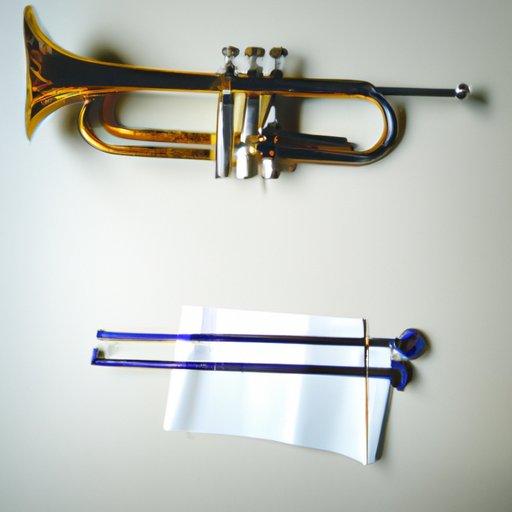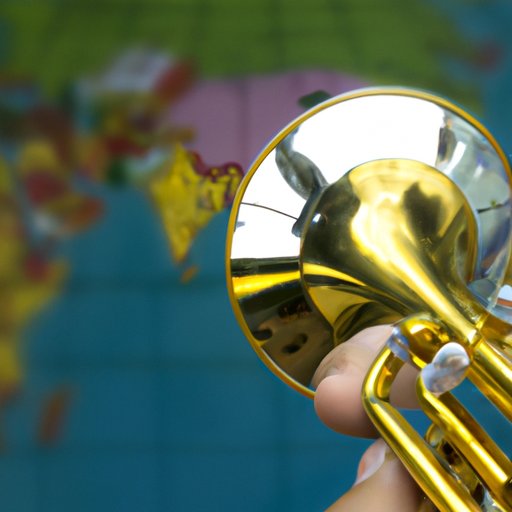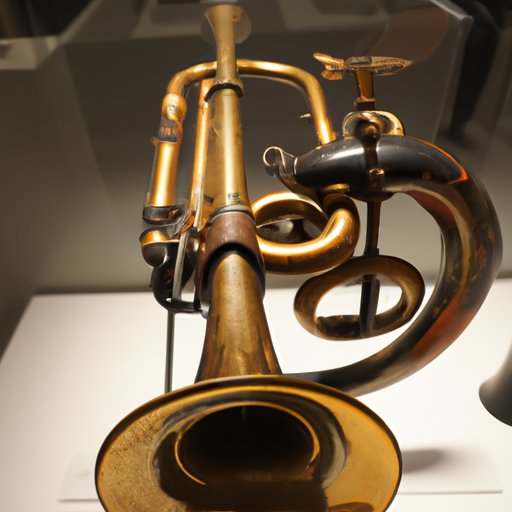Introduction
The trumpet is a brass instrument that has been used in music for centuries. It is characterized by its bright sound and piercing tone, and is often used to signal or announce important events. But when was the trumpet invented? This article will explore the historical origins of the trumpet, from its earliest evidence to its modern form. It will also look at the debate surrounding who is credited with inventing the instrument, and examine how it has impacted music around the world.
Historical Overview of the Invention of the Trumpet
The exact date of the invention of the trumpet is unknown, as it has likely been around since ancient times. What is known is that the earliest trumpets were natural trumpets, which means they had no valves or keys and could only play certain notes. Over time, these natural trumpets evolved into keyed trumpets and then valve trumpets, which allowed musicians to play a wider range of notes.
A Look at the Different Types of Trumpets Throughout History
Natural trumpets are the earliest type of trumpet and were likely first used in ancient Egypt around 1500 BCE. These trumpets were made of metal and could only play certain notes. Keyed trumpets appeared in Europe around the 16th century and were similar to natural trumpets except they had three to five keys that allowed musicians to play more notes. Finally, valve trumpets were invented in the 19th century and featured three to four valves that allowed for even greater control over the pitch and volume of the instrument.

Exploring the Earliest Evidence of Trumpet Use
The earliest evidence of trumpet use dates back to ancient Egypt in the 15th century BCE. Artifacts such as terracotta figurines and wall reliefs depict trumpeters playing long, straight instruments. Ancient Greek and Roman writers also mention the use of trumpets in battle, religious ceremonies, and sporting events. During the Middle Ages and Renaissance period, trumpets became more popular in Europe, with many composers writing pieces specifically for the instrument.

How the Trumpet Changed Over Time
The invention of the valve system in the early 19th century revolutionized the trumpet. This new system allowed musicians to play a wider range of notes and gave them greater control over the sound of the instrument. The industrial revolution also had an effect on the manufacturing of trumpets, as factories began producing instruments at a much faster rate than before. This made trumpets more accessible and allowed them to spread to different parts of the world.
Who Invented the Trumpet and When?
There is some debate surrounding who is credited for inventing the trumpet. Some sources claim that the instrument was invented by the ancient Egyptians, while others attribute its invention to the Greeks or Romans. However, most historians agree that credit should be given to Antoine-Joseph Sax, who is credited with inventing the modern valve trumpet in 1814.

The Influence of the Trumpet on Music Around the World
The trumpet has had a profound impact on music around the world. It has become a staple in jazz music, with many famous jazz musicians using the instrument to create unique and innovative sounds. It has also had an impact on classical music, with composers such as Bach, Handel, and Haydn writing pieces specifically for the instrument. The trumpet has also spread to other parts of the world, with traditional folk music incorporating the instrument into their sound.
Conclusion
In conclusion, the exact date of the invention of the trumpet is unknown, but it is believed to have originated in ancient Egypt. Over time, the instrument evolved from natural trumpets to keyed trumpets and then valve trumpets. Many sources attribute the invention of the modern valve trumpet to Antoine-Joseph Sax in 1814. The trumpet has had a major influence on music around the world, from jazz to classical to folk music. Its bright sound and piercing tone make it one of the most recognizable instruments in the world.
(Note: Is this article not meeting your expectations? Do you have knowledge or insights to share? Unlock new opportunities and expand your reach by joining our authors team. Click Registration to join us and share your expertise with our readers.)
